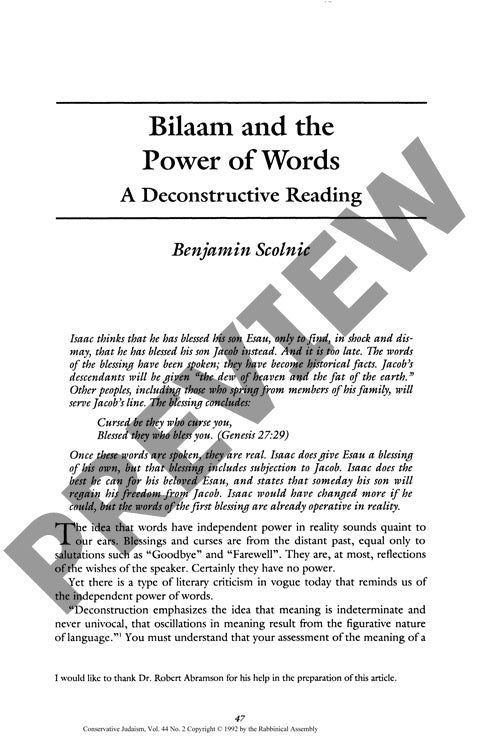Bilaam and the Power or Words a Deconstr
Couldn't load pickup availability
Words in biblical literature function as independent historical forces, wielding transformative power beyond their speakers' intentions - a phenomenon powerfully demonstrated in the narrative of Bilaam (Numbers 22-24). Through deconstructive literary criticism and close textual analysis, multiple theological tensions emerge within this complex tale: God simultaneously protects and destroys the Israelite generation, while Bilaam embodies both faithful prophet and enemy of Israel. The narrative struggles to accommodate a non-Israelite prophet within its monotheistic framework, revealing deeper uncertainties through deliberate intertextual references to the Exodus narrative and source-critical challenges, particularly in the talking donkey episode. Comparative analysis with other biblical passages, such as Isaac's misdirected blessing of Jacob, reveals how divine words consistently transcend human intentions. The Bilaam narrative ultimately "deconstructs" itself by pursuing incompatible goals—attempting to both adopt Bilaam as God's servant while condemning non-Israelite prophecy, and demonstrating Israel's chosenness during their period of divine punishment. Rather than seeking resolution through traditional harmonization or source criticism, these textual ambiguities emerge as essential to scripture's transformative power, suggesting that God's word remains most potent when left open to multiple interpretations rather than constrained by singular meanings.

More Information
-
Physical Description
-
Publication Information
Published 1992
ISBN
-
Publication Credits
Benjamin Scolnic

